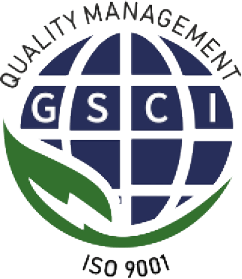
Plastic Balls
Introduction
Plastic balls are widely used across various industries due to their versatility, durability, and cost-effectiveness. DSP Precision Products Pvt. Ltd., a leading manufacturer with over 25 years of experience, has established itself as a key player in the production of high-quality plastic balls. The company’s extensive expertise and commitment to quality have made it a trusted supplier for clients around the globe. This detailed description explores the aspects of plastic balls manufactured by DSP Precision Products Pvt. Ltd., including material properties, manufacturing processes, quality control, customization options, and global export capabilities.
1. Company Overview
1.1. History and Expertise
Founded over 25 years ago, DSP Precision Products Pvt. Ltd. has built a reputation for excellence in precision ball manufacturing. The company’s long-standing experience in the industry reflects its commitment to innovation and quality. By continuously evolving with technological advancements and industry trends, DSP Precision Products has become a leading manufacturer of plastic balls, serving a diverse range of sectors.
1.2. Global Export Capabilities
With a robust global export network, DSP Precision Products Pvt. Ltd. reaches clients across various continents. The company’s ability to meet international standards and deliver high-quality products worldwide is a testament to its efficiency and reliability. The company’s export operations ensure that clients receive timely deliveries and consistent product quality, reinforcing its position as a preferred supplier in global markets.
2. Plastic Ball Specifications
2.1. Material Composition
Plastic balls manufactured by DSP Precision Products Pvt. Ltd. are made from a range of high-quality plastic materials, each chosen for specific properties and applications. Common materials include:
- Polyethylene (PE): A widely used thermoplastic known for its low density, chemical resistance, and impact resistance. PE balls are commonly used in applications where durability and cost-effectiveness are important.
- Polypropylene (PP): Another versatile thermoplastic that offers high chemical resistance and strength. PP balls are used in various applications, including automotive and industrial settings.
- Polycarbonate (PC): Known for its high impact resistance and optical clarity. PC balls are used in applications requiring high strength and transparency.
- Nylon (PA): A strong, durable plastic with excellent wear resistance and self-lubricating properties. Nylon balls are ideal for applications where friction and wear are concerns.
- Acrylic (PMMA): This material provides high clarity and is often used where transparency is required. Acrylic balls are also known for their aesthetic appeal.
2.2. Mechanical and Physical Properties
- Density: Plastic balls are lighter than metal balls, which can be advantageous in applications where weight is a critical factor. For example, polyethylene balls have a density of around 0.92 g/cm³, while polypropylene has a density of approximately 0.90 g/cm³.
- Strength: The strength of plastic balls varies depending on the material used. For example, polycarbonate balls offer high impact resistance, while nylon balls provide excellent wear resistance.
- Chemical Resistance: Plastic balls exhibit varying degrees of resistance to chemicals. Polyethylene and polypropylene have good resistance to many acids and bases, while polycarbonate and acrylic may have limited chemical resistance.
- Temperature Resistance: Plastic balls can tolerate different temperature ranges depending on the material. Polypropylene balls are suitable for temperatures up to 100°C, while polycarbonate can withstand temperatures up to 130°C.
3. Manufacturing Process Plastic Balls
3.1. Raw Material Preparation
The manufacturing process begins with selecting high-quality plastic resins. These resins are chosen based on the desired properties of the final product. The raw materials are typically supplied in pellet form and are carefully inspected before use.
3.2. Molding Process
- Injection Molding: This is the primary method used to produce plastic balls. The plastic pellets are melted and injected into a mold under high pressure. The mold shapes the molten plastic into the desired spherical form. Once cooled, the mold is opened, and the plastic ball is ejected. Injection molding allows for precise control over the size, shape, and surface finish of the balls.
- Blow Molding: For larger plastic balls, blow molding may be used. In this process, a hollow plastic preform is inflated within a mold to form the spherical shape. This method is suitable for producing large, lightweight balls.
3.3. Finishing Processes Plastic Balls
- Trimming: After molding, excess material (flash) around the ball is trimmed off to ensure a smooth and uniform surface.
- Polishing: Depending on the material and application, the balls may be polished to enhance their surface finish and appearance. This is particularly important for plastic balls used in consumer products or decorative applications.
3.4. Quality Control of Plastic Balls
Quality control is an integral part of the manufacturing process at DSP Precision Products Pvt. Ltd. The following measures are implemented to ensure that each plastic ball meets high standards:
- Dimensional Inspection: Advanced measurement tools are used to verify the diameter, roundness, and surface finish of each ball. This ensures that the balls adhere to specified tolerances and dimensions.
- Mechanical Testing: Testing is conducted to assess the strength, impact resistance, and wear properties of the plastic balls. This ensures that the balls perform as expected in their intended applications.
- Chemical and Temperature Testing: Plastic balls are tested for their resistance to chemicals and temperature extremes to ensure they meet the requirements of their intended use.
4. Customization and Flexibility
4.1. Custom Sizes and Specifications of Plastic Balls
DSP Precision Products Pvt. Ltd. offers extensive customization options for plastic balls. Clients can specify various sizes, from small precision balls to larger industrial sizes. The company’s flexibility allows for the production of balls tailored to specific application requirements.
4.2. Custom Colors and Finishes
Customers can request various colors and finishes for plastic balls. The company can produce balls in custom colors to meet branding or aesthetic requirements. Additionally, different surface finishes can be applied to achieve desired textures or appearances.
4.3. Technical Support
The company’s experienced technical team provides expert guidance to clients, assisting with material selection, design considerations, and manufacturing processes. This support ensures that customized plastic balls meet the exact needs of each application.
5. Applications
5.1. Industrial Applications
- Bearings: Plastic balls are used in various types of bearings, including ball bearings and roller bearings. Their lightweight and low friction properties make them suitable for applications in machinery and equipment.
- Conveyor Systems: Plastic balls are employed in conveyor systems to facilitate smooth movement of materials and reduce friction.
5.2. Automotive Industry
- Fuel Systems: Plastic balls are used in automotive fuel systems for their chemical resistance and lightweight properties.
- Interior Components: They are also used in various interior components, such as switches and knobs, where durability and aesthetic appeal are important.
5.3. Consumer Products
- Toys: Plastic balls are commonly used in toys due to their safety, lightweight, and durability. They can be found in items such as bouncing balls, ball pits, and playground equipment.
- Decorative Items: Plastic balls are used in decorative items and craft projects due to their versatility and the ability to produce them in various colors and finishes.
5.4. Scientific and Laboratory Equipment
- Mixing and Grinding: Plastic balls are used in scientific and laboratory equipment for mixing and grinding applications. Their non-reactive properties make them suitable for use with various substances.
- Calibration Devices: They are also employed in calibration devices where precise dimensions and consistency are crucial.
5.5. Healthcare and Medical Devices
- Medical Devices: Plastic balls are used in medical devices and equipment, such as prosthetics and diagnostic instruments. Their biocompatibility and durability make them suitable for use in healthcare applications.
- Drug Delivery Systems: They are also employed in drug delivery systems for their reliability and precision.
5.6. Aerospace and Defense
- Aircraft Components: Plastic balls are used in various aircraft components, including controls and bearings, where lightweight and corrosion resistance are important.
- Defense Equipment: They are also utilized in defense equipment, where durability and performance are critical.
6. Advantages of DSP Precision Products Pvt. Ltd.’s Plastic Balls
6.1. Extensive Expertise
With over 25 years of experience, DSP Precision Products Pvt. Ltd. has developed a deep understanding of plastic ball manufacturing. This expertise ensures that each ball is produced to the highest standards of quality and performance.
6.2. Premium Quality Assurance
The company’s commitment to using high-quality materials and implementing rigorous quality control measures guarantees that each plastic ball meets stringent industry standards. The focus on quality ensures reliability and durability.
6.3. Customization Capabilities
DSP Precision Products Pvt. Ltd. offers extensive customization options for plastic balls, allowing clients to obtain products tailored to their specific needs. This flexibility enhances the utility and performance of the balls in various applications.
6.4. Global Export Reach
The company’s global export capabilities enable it to serve a wide range of international clients. DSP Precision Products Pvt. Ltd.’s reputation for quality and reliability has established it as a preferred supplier in global markets.
7. Environmental Considerations
7.1. Sustainable Practices
DSP Precision Products Pvt. Ltd. is committed to sustainability and minimizing the environmental impact of its manufacturing processes. The company implements energy-efficient practices and strives to reduce waste throughout its operations.
7.2. Recycling and Waste Management
Plastic materials used in the production of plastic balls can be recycled, and the company’s recycling and waste management practices contribute to resource conservation and environmental sustainability. Scrap material from production is collected and recycled to reduce environmental impact.
8. Conclusion
DSP Precision Products Pvt. Ltd.’s plastic balls epitomize the company’s dedication to precision engineering, premium quality, and customer satisfaction. With over 25 years of experience and a strong global presence, the company.



